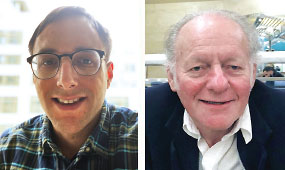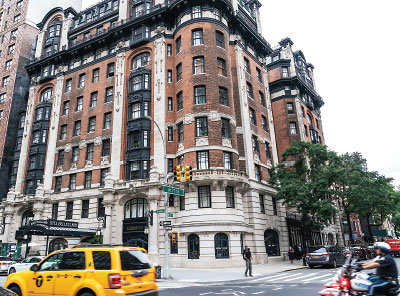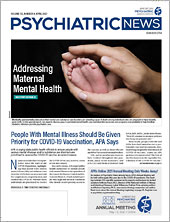Despite recurrent initiatives to reduce homelessness in the United States over the last 40 years, the number of homeless people has roughly doubled, from approximately 250,000 in the early 1980s to over 500,000 people on any given night currently.
This observation has led many to believe that homelessness is intractable. Social and economic hardships associated with the COVID-19 pandemic have led to even more dramatic surges in homelessness. Yet we believe that homelessness is surmountable. Here we describe a single rapid intervention—using good-quality hotels to accommodate homeless people—that has already had a sizable immediate impact.
This intervention cannot substitute for a fully developed policy that would include prevention, low-income housing, supportive housing for homeless people with psychiatric and/or other disabilities, and much else. Nor does it resolve the absence of political will to reduce the ever sharper, shameful disparities between the destitute and the wealthy. But it illustrates a viable and humane approach to accommodate a large proportion of homeless people. Moreover, it suggests that broader approaches, already well developed but not implemented, might be similarly feasible.
Hotel accommodations were introduced in many cities as a temporary measure for homeless people in recognition that congregate shelters facilitate the transmission of COVID-19. This was undertaken in partnership with hotels that were largely vacant due to the pandemic and at risk of bankruptcy. As the pandemic and hotel vacancy persist, this practice may emerge as a permanent feature of policies to assist homeless people.
The use of hotels to house homeless people has been a nationwide phenomenon, but we will focus on three cities as examples. In New York City, shortly after the pandemic hit, there were about 20,000 single adults in congregate shelters, and many others living in the streets. Within several months, 10,000 homeless people (6,000 by April alone) were moved from shelters to single- or double-occupancy rooms, using 139 hotels (roughly 20% of the city’s hotels). Officially, the city regards hotels as temporary accommodations, but funding from the Federal Emergency Management Agency is now assured until at least September, shortly before the next mayoral election. To our knowledge, none of the current mayoral candidates has endorsed eviction of formerly homeless people from hotels, and some have endorsed long-term use of hotels. What mayor would want his or her legacy tarnished by heartlessly evicting thousands of vulnerable people?
Similar efforts have been undertaken in Los Angeles and Seattle, where 4,300 and 1,100 homeless people, respectively, were relocated, mainly to hotels. The manifold benefits of hotel-based accommodations (beyond reducing viral transmission and sustaining hotel owners) and their potential for augmentation with case management integration and a grounding in supportive housing principles have become apparent. A University of Washington study by Gregg Colburn, Ph.D., and colleagues in the past year compared outcomes in hotels and shelters in King County, Wash., where hotel residents received a private room and bathroom with on-site case management accessible 24/7. COVID-19 cases remained low among hotel residents but increased among residents of congregate shelters, which also had enhanced case management services. Additionally, first-responder dispatches to hotel sites declined relative to shelters, ostensibly because hotel rooms afforded guests private living quarters, whereas communal spaces in congregate shelters stoked interpersonal conflicts. Positive findings have also emerged from several hotels in New York.
Los Angeles and other cities in California are now increasing the use of hotels for accommodating homeless people and acquiring some for conversion to permanent housing. King County recently committed to purchasing hotel and nursing home properties to house 2,000 homeless people.
The use of hotels fits neatly with two primary evidence-based practices to assist homeless people. One is Housing First, which frames housing as a human right, not something conditioned upon adherence to psychiatric and substance use treatment. In this model, participants have access to private or shared apartments along with flexible, consumer-driven, and voluntary services. Quality hotel rooms are not equivalent to studio or one-bedroom apartments, which homeless people often prefer. But hotels offer far safer and more comfortable accommodations than the streets or shelters and should be used whenever possible. The other evidence-based practice is Critical Time Intervention (CTI), an empirically supported, time-limited care coordination model initially designed for transitions from a shelter to community housing and services and later for a variety of other transitions. CTI could assist hotel residents in finding suitable housing; it could also link them with formal services and informal supports, including other hotel residents and consumer-led advocacy efforts.
The nation is at a crossroads. Whether the paradigm-bending use of hotels to combat homelessness will outlast the pandemic remains unclear. What is clear is that we have a choice: to commit to humane accommodations for homeless people or revert to deeply flawed approaches that have proven ineffective over the past 40 years. More research will elucidate the full scope, benefits, and limitations of relying on hotels as an immediate step toward addressing homelessness for single adults, but we believe this experiment that has emerged out of the pandemic may prove enduring as one part of a comprehensive policy for people who are homeless or precariously housed.
Contributing authors include Sarah Conover, M.P.H., Daniel Herman, Ph.D., M.S.W., James M. Mandiberg, Ph.D., M.S.W., and Jonathan Prince, Ph.D., M.S.W., of the Silberman School of Social Work, Hunter College, City University of New York; Alison Chou, M.S.W., of the School of Social Work, Columbia University; Deborah K. Padgett, Ph.D., M.P.H., of the Silver School of Social Work, New York University; and Kim M. Fader, M.A., of the Mailman School of Public Health, Columbia University. All authors are members of HOTELS-NYC. ■
“Impact of Hotels as Non-Congregate Emergency Shelters” is posted
here.


